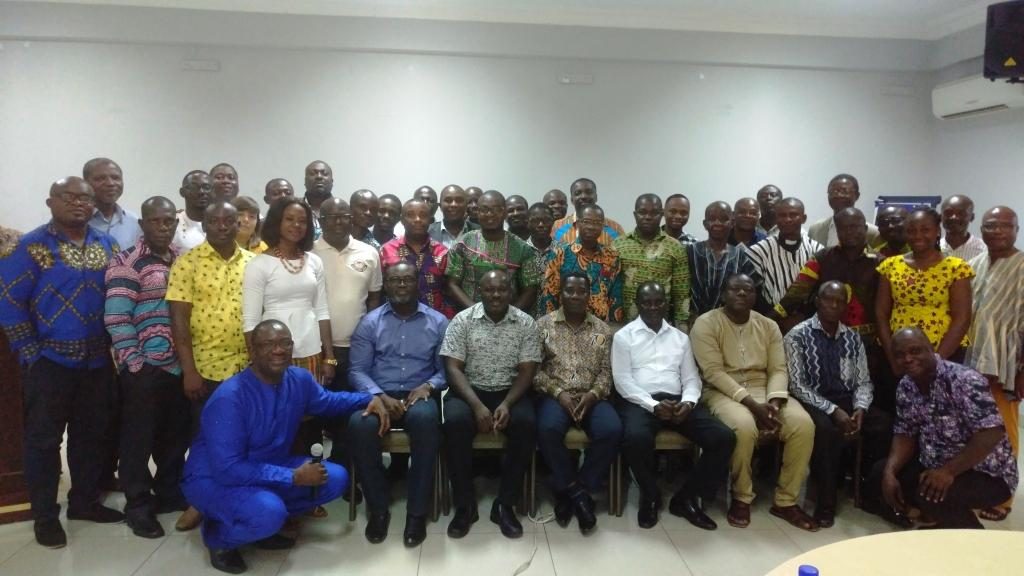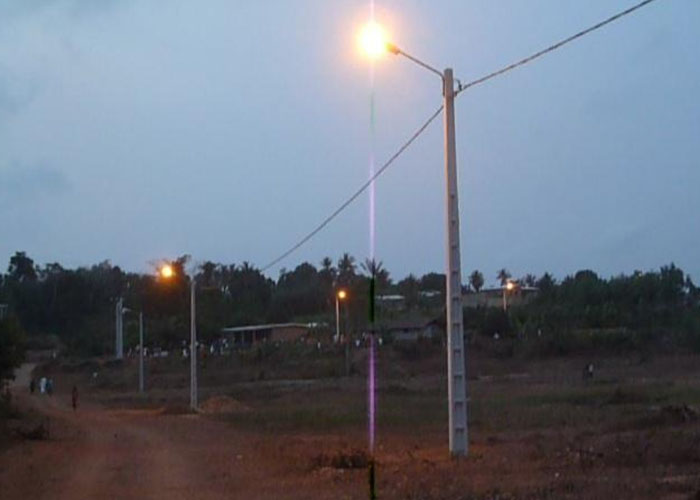
By Kofi Adu Domfeh
The demand for cocoa remains high, with increasing consumption of cocoa products by emerging economies which is expected to increase in the coming decades.
However, the cost of producing the beans continues to increase, yields are declining and the negative impacts of climate change continue to threaten the already poor smallholder cocoa farmers.
The cocoa sector has also seen very limited innovations and new investments while cocoa trees and farmers continue to age.
“One of the impacts of this dwindling productivity is the removal of shade trees from farms and the expansion of cocoa cultivation into areas of rainforest,” said Harm Duiker, Country Director of SNV Netherlands Development Organisation. “As a result, globally, cocoa is counted among the major driver of deforestation and biodiversity loss”.
As a forest shade grown tree, cocoa is a crop that thrives in areas of high biodiversity and tropical forests landscapes.
Farmers and scientists alike recognize that shade trees are vital to reducing both ecological and economic risks, including maintenance of soil fertility and moisture, weed suppression and pest and disease control.
They also acknowledge shade trees play an important role in climate adaption in cocoa system.
However, there is increasing demand for scientific evidence of ecological and economic benefits of trees in cocoa systems.
Recent studies have contested the benefits claimed to be associated with cocoa agroforestry, including mitigating adverse climate effects, pathogen or disease regulation, and more importantly improvements in soil fertility.
The Cocoa Dialogue
The national dialogue on cocoa agroforestry systems therefore had the objective of consolidating evidence-based ecological and economic benefits of cocoa agroforestry systems, identifying gaps in knowledge and to ensure consistency in promoting cocoa agroforestry science, policy and practice in Ghana.
It was organised by SNV Ghana in collaboration with the Ghana Cocoa Board, the Faculty of Renewable Natural Resources, KNUST and International Institute for Tropical Agriculture (IITA).
The event attracted experts who observed that gaps in science and practice, and inconsistencies in the promotion of cocoa agroforestry as well as land and tree tenure bottlenecks constitute major challenges to the rapid adoption of cocoa agroforestry systems among smallholder cocoa farmers in Ghana.
They called for increased research to fill the gaps in evidence-base science and the practice of cocoa agroforestry systems in Ghana.
Rev. Dr. Emmanuel Ahia Clottey, the Deputy Director Cocoa Health and Extension Division (CHED), reiterated COCOBOD’s commitment to promoting cocoa agroforestry under its recently launched cocoa rehabilitation project.
He said the current programme targets only 156,400ha out of the 700,000 total rehabilitation need of the entire cocoa landscape of Ghana.
He therefore called for stakeholders’ investment into cocoa rehabilitation in order to increase productivity of current land under cultivation in Ghana.
Expert presentations and discussions were made on the current state of knowledge on soil improvement, soil nutrient and water competition, disease and pest control, trees species recommendation in shaded cocoa systems.
According to Prof. Boateng Kyeremeh from the Faculty of Renewable Natural Resources, KNUST, the realities of climate change vis-a-vis sustainability show the importance of holding the national dialogue to help farmers built resilience.
He believes Ghana’s cocoa industry should be able to meet the challenges imposed by climate change with scientific support and political will.
Building Resilient Smallholder Systems
The national dialogue forms part of activities under the Shaded Cocoa Agroforestry System (SCAFS) project, being implemented by SNV with funding support from the German Federal Ministry of Environment, Nature Conservation and Nuclear Safety (BMU).
SNV supports cocoa agroforestry as a model towards more diversified and resilient smallholder systems that can help to increase and secure production in the long term with ecological benefits.
“This is important to smallholder cocoa farmers that are affected sometimes by highly volatile global prices and by climate change,” said Harm Duiker.
He indicated that cocoa agroforestry practices come at a cost to smallholder farmers and a deeper understanding of the processes in cocoa agroforestry systems will help to promote its benefits to smallholder farmers.
The national dialogue on cocoa agroforestry systems was attended by academia and research institutions, private license cocoa buying companies, farmer’ representatives, non-governmental organizations and representatives from the public.












Well captured article. Indeed, it is the way forward to go in projects and programmes related to cocoa agroforestry with all industry players working together to achieve the desire results